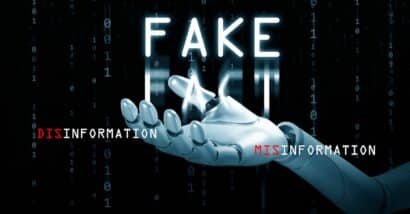 A class action lawsuit was filed against OnStar, alleging that the subscription-based vehicle communication service made numerous unsolicited phone calls via an autodialer in violation of the Telephone Consumer Protection Act (TCPA).
A class action lawsuit was filed against OnStar, alleging that the subscription-based vehicle communication service made numerous unsolicited phone calls via an autodialer in violation of the Telephone Consumer Protection Act (TCPA).
A Minnesota resident alleges that OnStar violated the TCPA by making automated phone calls to him and other consumers. He seeks to represent a proposed nationwide class of individuals who received these unsolicited phone calls without their consent.
Plaintiff Daniel Duchene alleges in the TCPA class action lawsuit that “OnStar made automated telephone calls to the wireless telephone number of plaintiff and the other class members. These phone calls were made without the prior express consent of plaintiff or the other Class Members and were not made for emergency purposes. OnStar has therefore violated the TCPA.”
Duchene, who says he is not an OnStar customer, claims he was not given an opportunity to opt out of these phone calls, alleging that when he answered the unsolicited phone calls, there was silence on the other end and the call was ended before anyone came on the line.
He also alleges that he received voicemails with “screeching and beeping” sounds from the OnStar affiliated number. Furthermore, Duchene believes these automated phone calls were facilitated by an automatic telephone dialing system or ATDS that used a number generating predictive algorithm.
“OnStar did not have express consent to place calls using an ATDS to plaintiff’s cellular telephone,” the OnStar TCPA class action lawsuit says. “Plaintiff has received multiple calls from OnStar to his cellular phone in this fashion.”
Duchene is seeking $1,500 in statutory damages for each willful TCPA violation as well as injunctive relief banning OnStar from making these unsolicited phone calls in the future.
The Telephone Consumer Protection Act
The Telephone Consumer Protection Act (TCPA) is the main federal law that is intended to curb unsolicited phone calls using an automatic telephone dialing system. These calls are banned unless companies are given explicit consent by consumers to receive them or if the call is for emergency purposes.
This ban applies even if you have not placed your phone number on the national Do-Not-Call Registry list.
The law specifically states that each unsolicited phone call carries a civil fine of between $500 to $1,500. For cell phone users, the problems could be more than just simple annoyances. Many cell phone carriers charge for received calls and the problem is amplified if the recipient is on a pre-paid cell phone plan.
The OnStar TCPA Class Action Lawsuit is Daniel Duchene v. OnStar LLC, Case No. 1:15-cv-00935, in the U.S. District Court for the Eastern District of Michigan.
Join a Free TCPA Class Action Lawsuit Investigation
If you were contacted on your cell phone by a company via an unsolicited text message (text spam) or prerecorded voice message (robocall), you may be eligible for compensation under the Telephone Consumer Protection Act.
ATTORNEY ADVERTISING
Top Class Actions is a Proud Member of the American Bar Association
LEGAL INFORMATION IS NOT LEGAL ADVICE
Top Class Actions Legal Statement
©2008 – 2026 Top Class Actions® LLC
Various Trademarks held by their respective owners
This website is not intended for viewing or usage by European Union citizens.














